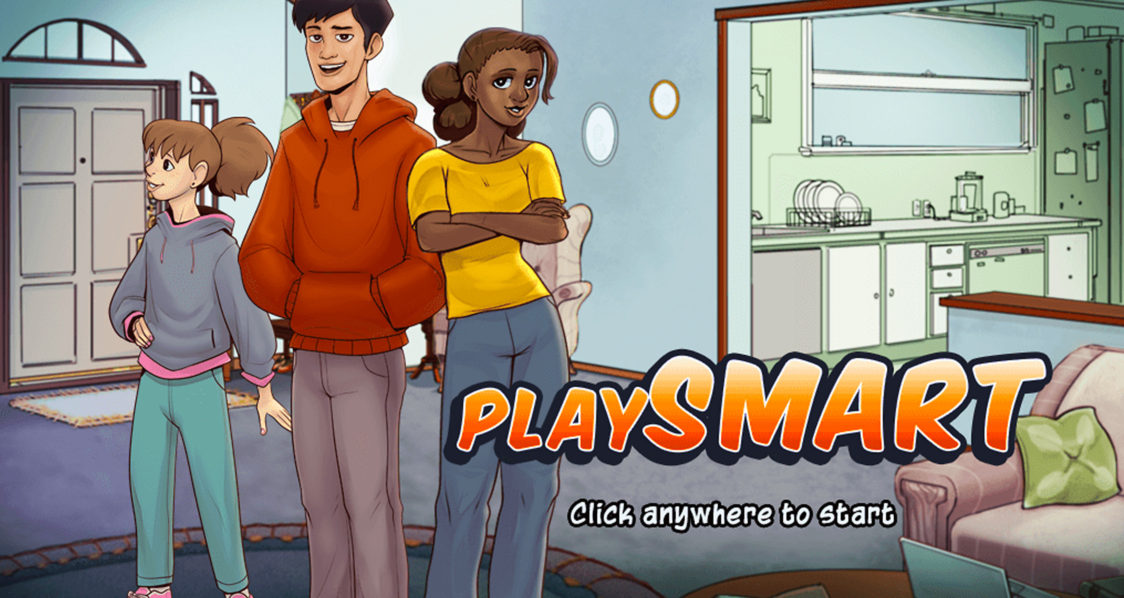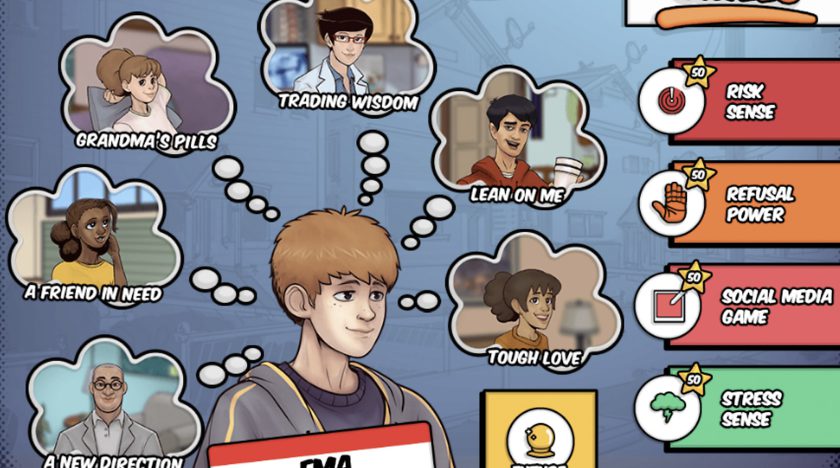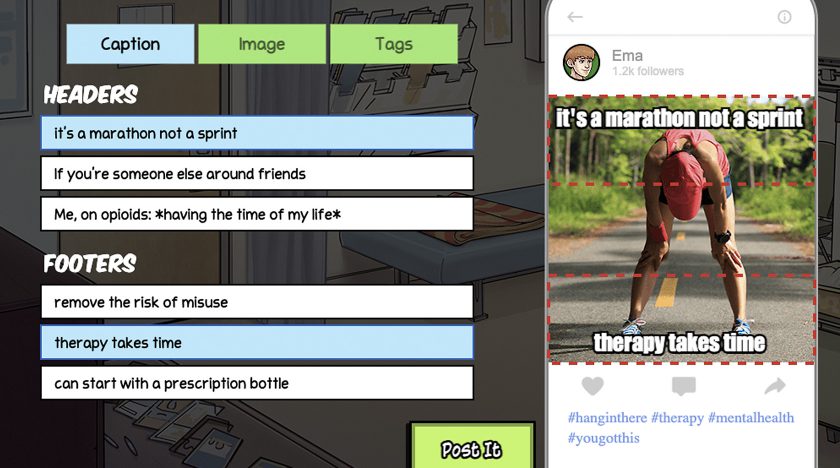A videogame intervention targeting opioid misuse prevention and mental health promotion in high school students, working with school-based health centers and school-based health programs.
The play2PREVENT (p2P) Lab was awarded in 2019 a UG3/UH3 grant from the National Institute on Drug Abuse (NIDA)’s Helping to End Addiction Long-term (HEAL) Initiative to create a videogame intervention, PlaySmart, targeting opioid misuse prevention and mental health promotion in 16-19 year old adolescents, in partnership with school-based health centers. We are one of 10 national prevention sites as part of the HEAL Prevention Cooperative.
Given the initiation of opioid misuse frequently occurs in adolescence and young adulthood, PlaySmart has been designed for older adolescents aged 16-19, with the goal to teach players the critical skills and knowledge through an engaging and interactive videogame targeting their perception of risk surrounding opioid misuse.
Working with our partners at Digitalmill and Schell Games, PlaySmart was built upon our existing videogame interventions and is part of our PlayForward Prevention Platform. With funding from the National Institutes of Health (NIH)/National Institute on Drug Abuse (NIDA)’s Helping to End Addiction Long-term (HEAL) initiative, our team has developed a digital game, PlaySmart, to address opioid misuse in older adolescents. PlaySmart is intended to target perception of risk of harm of opioid misuse and mental health in older adolescents and enhance their critical social-emotional learning (SEL) competencies through interactions in the videogame platform. PlaySmart includes six relatable storylines, the content of which was informed by our focus groups with youth, those in treatment for opioid use disorder, treatment providers, prevention specialists, and other key stakeholders. Due to the strong association between mental health issues and substance misuse as well as findings from our focus groups, we have included a significant focus on mental health in the game that aims to inform and de-stigmatize the recognition and treatment of mental health and mental illness.
Following development, PlaySmart was pilot-tested, and is now being evaluated through a 12-month randomized controlled trial, enrolling 532 adolescents, aged 16-19, who are assigned to play either PlaySmart or a set of attention/time control games. The p2P Lab, at the same time, is working with school-based health centers to develop and test implementation strategies and is also conducting a cost-effectiveness analysis of PlaySmart and implementation strategies.





